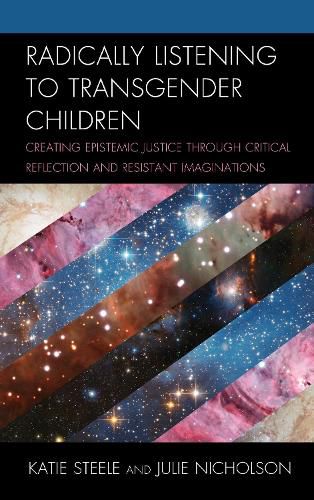Readings Newsletter
Become a Readings Member to make your shopping experience even easier.
Sign in or sign up for free!
You’re not far away from qualifying for FREE standard shipping within Australia
You’ve qualified for FREE standard shipping within Australia
The cart is loading…






This book is for early childhood educators committed to learning about gender [in]justice as a foundation for creating gender affirming early learning environments for all children including those who are transgender and gender expansive (TGE). The authors engage in progressive and contemporary thinking about gender acknowledging its complexity, intersectionality, diversity and dynamism. They draw on Miranda Fricker’s (2007) concepts of testimonial injustice to discuss how young TGE children are considered too young to have gender identities or to truly know themselves and hermeneutical injustice to represent the challenges TGE children face in educational environments that do not provide them with linguistic or interpretive tools to help them fully understand and communicate about their gender. Woven throughout the book are the lived experiences and counter-stories of TGE children and adults that privilege their voices and highlight their right to contribute equally to societal understandings of gender and to access all the tools a given society has available at the time to help them name and understand their own experiences. The authors provide discourse, conceptual frameworks and concrete strategies educators can use to inspire resistant social imaginations (Medina, 2013) and actions that improve gender justice for our youngest children.
$9.00 standard shipping within Australia
FREE standard shipping within Australia for orders over $100.00
Express & International shipping calculated at checkout
This book is for early childhood educators committed to learning about gender [in]justice as a foundation for creating gender affirming early learning environments for all children including those who are transgender and gender expansive (TGE). The authors engage in progressive and contemporary thinking about gender acknowledging its complexity, intersectionality, diversity and dynamism. They draw on Miranda Fricker’s (2007) concepts of testimonial injustice to discuss how young TGE children are considered too young to have gender identities or to truly know themselves and hermeneutical injustice to represent the challenges TGE children face in educational environments that do not provide them with linguistic or interpretive tools to help them fully understand and communicate about their gender. Woven throughout the book are the lived experiences and counter-stories of TGE children and adults that privilege their voices and highlight their right to contribute equally to societal understandings of gender and to access all the tools a given society has available at the time to help them name and understand their own experiences. The authors provide discourse, conceptual frameworks and concrete strategies educators can use to inspire resistant social imaginations (Medina, 2013) and actions that improve gender justice for our youngest children.